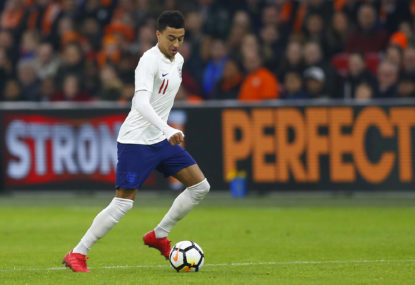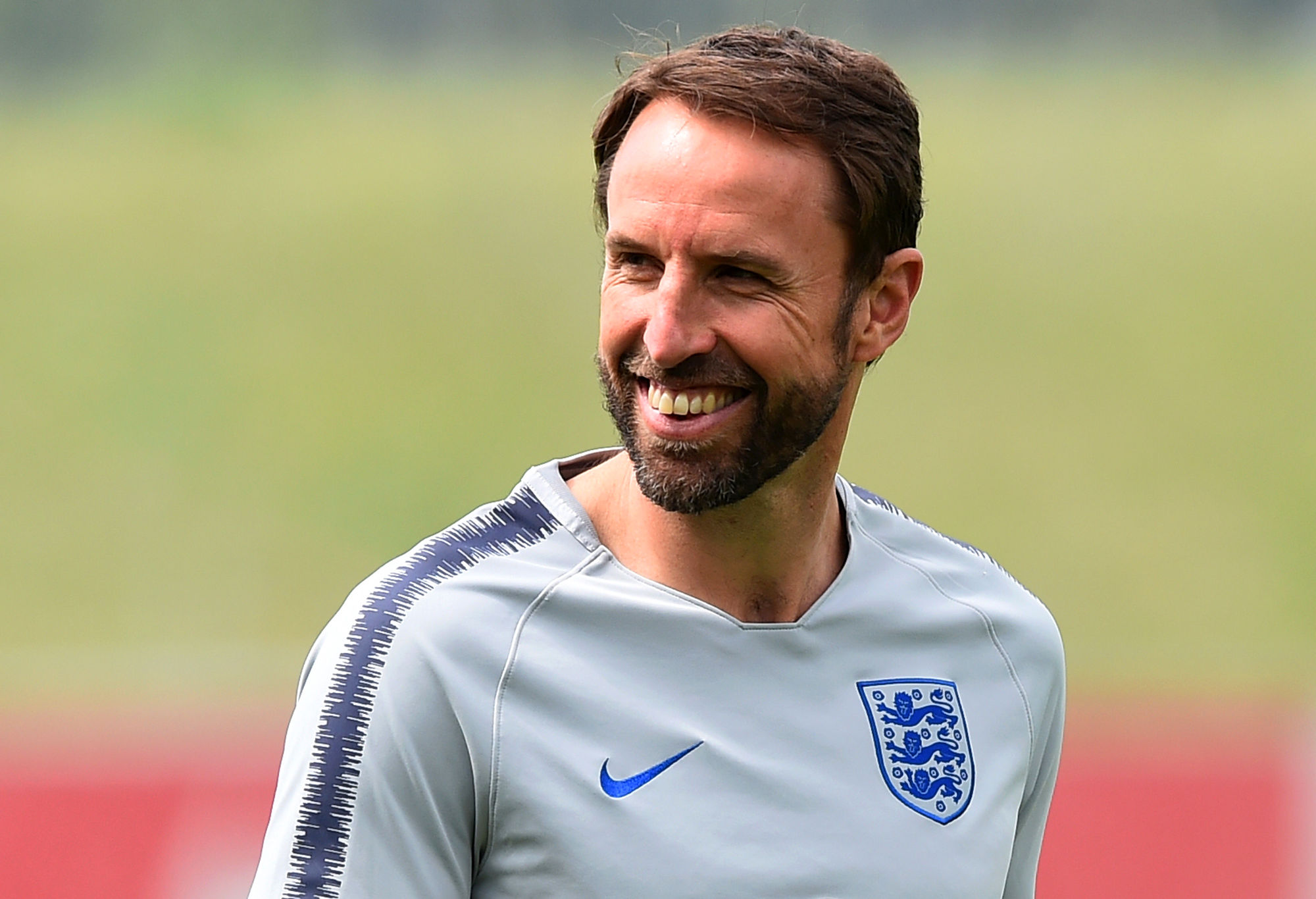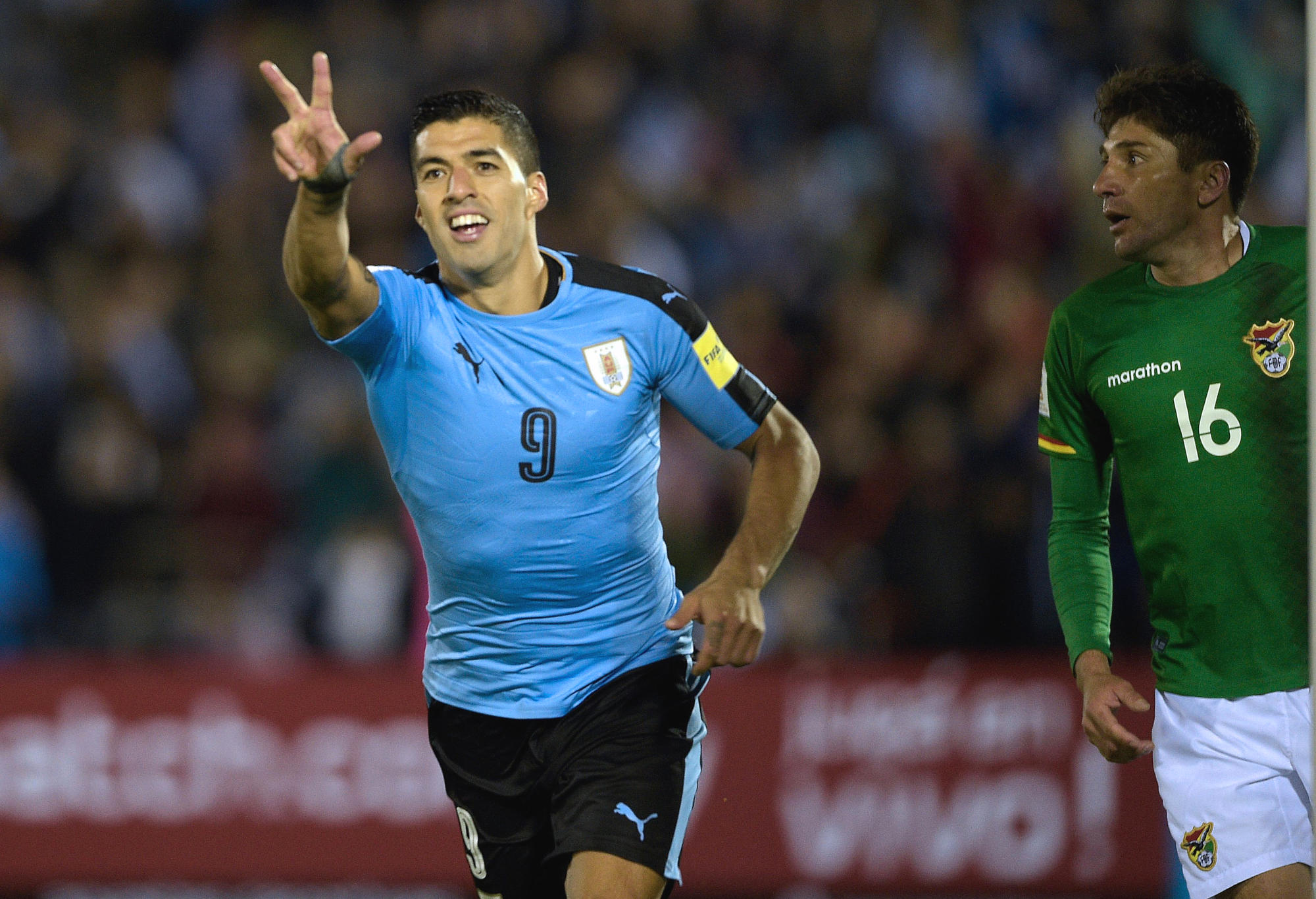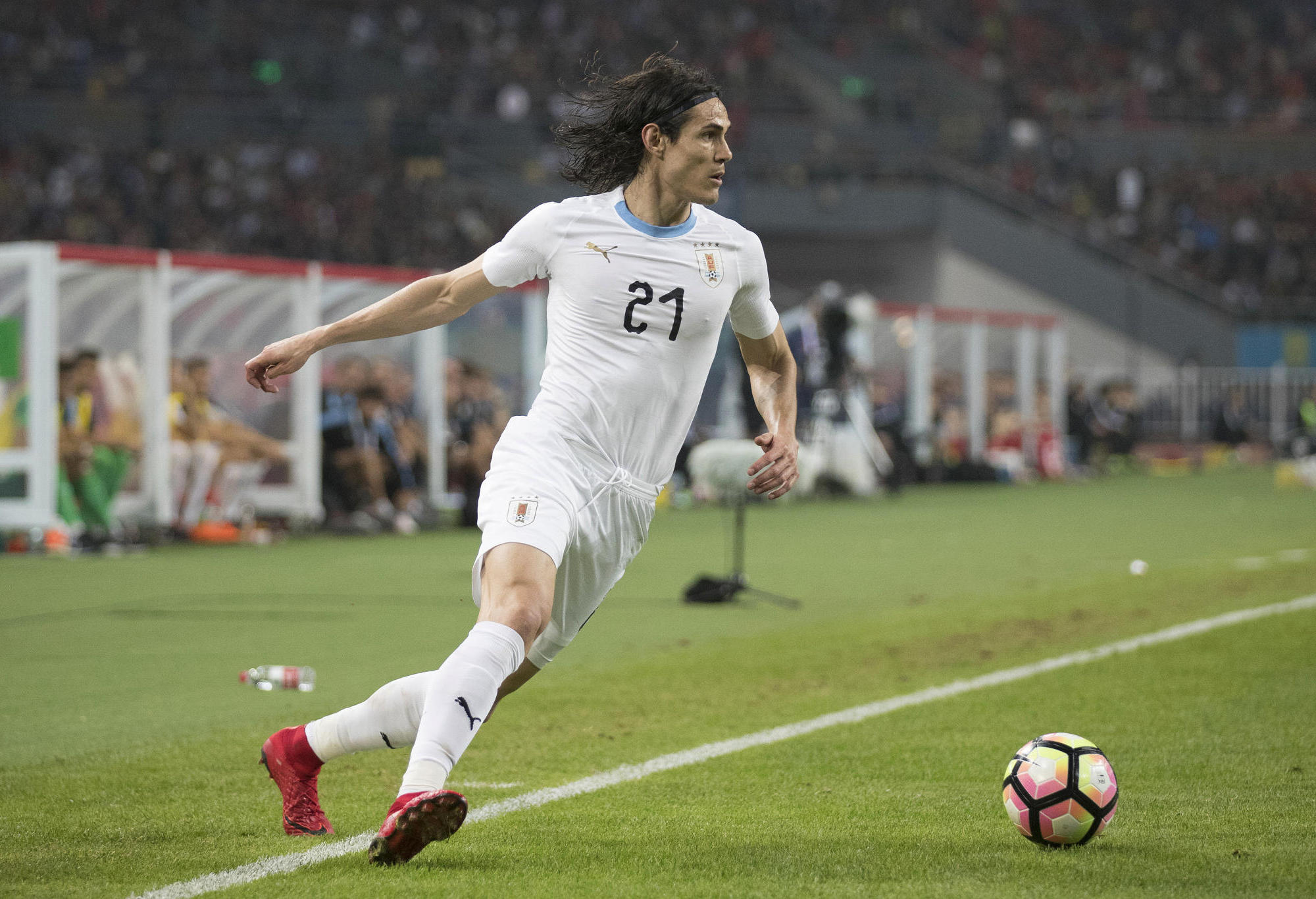Young excellence, promotion battles, and a happy farewell: The Australian team of the week from players around the globe
Even though St.Pauli ultimately lost a high-scoring affair, Jackson Irvine was a standout, as well as scoring a late goal.

Pre-tournament, I had England and Uruguay as my rough World Cup chances at decent odds.
As it stands, both remain alive with the South Americans already into the quarter-finals after a thrilling win over Portugal.
England have their chance to reach the last eight tonight when they play the dangerous Colombia at the Partak Stadium.
England manager Gareth Southgate has fast developed a reputation as a unifying voice in the camp. With big egos and even bigger pay cheques playing such a dominant role in English football, massaging personalities and reputations has been a difficult managerial task for some time.
It appears Southgate has established a much needed sense of selflessness in the team and the squad stands at the brink of over-achievement; so moderate were some expectations of their chances leading into Russia.

Gareth Southgate (Photo by Nathan Stirk/Getty Images)
Young captain Harry Kane appears to be the embodiment of the message Southgate has attempted to convey. Focussing on a common cause with sacrificial purpose and drive is working well for England.
As talented, brilliant and consistent as Kane is – endlessly pulling balls from the back of the net so prodigious is his scoring – he also looks like a man who wears the English jersey with the pride and passion of days gone by.
No doubt, many of England’s recent World Cup failures stemmed from teams chock full of Premier League talent that were dysfunctional at the core. England suffered at the hands of the very competition that could potentially keep them as a constant threat at major international tournaments.
The Premier League has helped a lot of other countries far more than the English themselves.
After failing to qualify for the finals in the USA in 1994, the form guide since is one of disappointment for the Three Lions, with quarter-final appearances in 2002 and 2006 the country’s best result.
The nightmare of 2014 where the end point was the group stage, saw the English team at rock bottom and Southgate found his way to the job in September 2016 after Sam Allardyce said a little too much over lunch.
With a 57 per cent success rate over his first two years in the job and only three losses, he has made an impressive start.
The signs were there that the man from Watford might just be the future of English managerial leadership after achieving an 81.8 per cent winning record with the Under 21 squad.
Quarter-final or not, things are undoubtedly looking up.
A similar uptrend in performance is evident for Uruguay. Blessed with what I felt was a fairly manageable draw when pooled with Egypt, Saudi Arabia and Russia, their progression to the knockout phase looked likely.

Uruguay’s Luis Suarez (MIGUEL ROJO/AFP/Getty Images)
There were a few hairy moments along the way, a late winner and some controversy, but advance they did and with the scalp of the European Champions now on their belt, the French loom as the next challenge.
Uruguay’s World Cup history is something of a hit and miss affair. As the original World Cup hosts and Champions, as well as being two-time winners, the country’s role in World Cup history is forever etched. The fans ‘get’ the event and possess an intuitive understanding of its meaning and significance.
In modern times, a fourth place in South Africa is the shining achievement. Prior to that result, Uruguay had failed to qualify for five of the previous eight editions of the World Cup Finals.
Since 2010, they have been a staple in the event and now face a dangerous French team that finally showed some flair against Argentina; with the threat of Kylian Mbappe on show for all to see.
Prior to 2010, this would have been a lock for France but not this time around. Uruguay have the weapons to continue their run.
Australia’s relationship with Uruguay in a football sense stems way back to 1974 when two friendlies took place. However it was World Cup Qualification matches in 2001 and 2005 where things became far more interesting.
On that famous night in Sydney, there was little to separate the two teams. Uruguay took the honours in the first leg at home and Australia did the same four days later.
Mark Schwarzer produced the remarkable save in the subsequent shootout, John Aloisi held his nerve and the rest is history.
Blessed with a generation of quality, the leadership and experience in the Socceroos’ team was considerable. Uruguay were strong with Diego Forlan and Alvaro Recoba as their inspirations yet didn’t possess anything near the weapons they do today.
Subsequently, both nations have taken their place in the finals in South Africa, Brazil and now Russia and while there is some sense of parallelism in their journeys since the dramatic penalty shootout, their results have been vastly different.
As it stands, Uruguay are about to play for a spot in a World Cup semi-final and Australia has licked its wounds and headed off home for the third time in succession.
The essential difference is the fact that Edinson Cavani and Luis Suarez are match-winners.

Uruguay’s Edison Cavani controls the ball. (Photo by XIN LI/Getty Images)
Cavani came into the national set-up in 2008 and has slotted 45 goals in 105 games for his country along with over 200 for Palermo, Napoli and Paris Saint-Germain collectively.
Suarez was capped a year earlier and has found the net 53 times in 102 internationals. Throw in 350 goals for Ajax, Liverpool and Barcelona and the numbers around the two-pronged attack become intimidating.
Both thirty-one, their arrival on the scene shaped the trajectory of Uruguay’s fortunes over the last decade.
In comparison, the Socceroos have battled away, overly reliant on an ageing Tim Cahill for goals, even when up against some relatively weak Asian Confederation opposition.
Cahill’s ability to capitalise on the blue-collar work upon which the Socceroos depend has slowly diminished and a replacement not been found.
Uruguay’s supporting cast keep things as tight as they can at the back before sending the ball forward; knowing full well that there are goals to be found when Cavani and Suarez find space.
When they combine, as they did for the first goal against Portugal on Sunday morning, it magnifies the chasm between international standard finishing and what the Socceroos have at their disposal in the front third.
We will always be somewhat connected to Uruguay after the events of 2005 and seeing where they are right now, reminds us of the value of men like Cavani and Suarez.
It also makes Australia’s search for its own versions of them even more important.